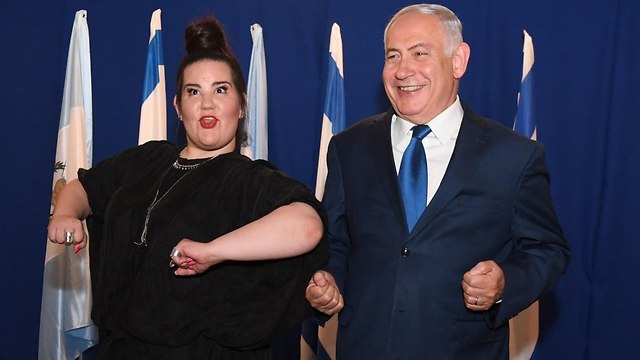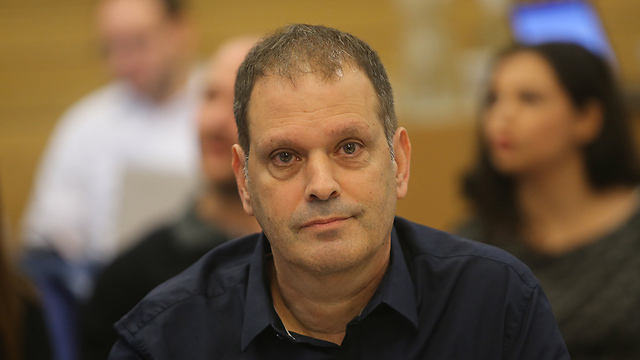

IPBC warns PM: Israel might not be able to host 2019 Eurovision
The Israel Public Broadcasting Corporation and the government are fighting about who will pay the 12 million euro guarantee to the European Broadcasting Union, due by August 14. Failure to pay the sum would mean Israel will have to give up the right to host the competition
The production cost of the Eurovision in Israel is estimated at 35 million euro, and the IPBC was supposed to transfer 12 million euro as a guarantee to the European Broadcasting Union (EBU) by August 1.
The EBU has agreed to give the IPBC an extension until August 14, but the issue of where the money will come from has not yet been resolved.
Israel won the 2018 Eurovision Song Contest with Netta Barzilai's "Toy," granting it the right to host next year's competition.
But despite his enthusiasm over the win, the prime minister refuses to allocate a budget for the competition, arguing the money should come from the IPBC's annual budget.
"The prime minister and the finance minister have decided a body budgeted at the enormous amount of NIS 750 million at the expense of the public can find the funds for a guarantee for the Eurovision. The IPBC is being wasteful and trying to sabotage the Eurovision," a source close to Netanyahu said.
The IPBC, meanwhile, claims it would not be able to take the money out of its own budget unless it fires 200 employees or cuts down on original productions.
The IPBC explained that its budget is "completely transparent and covers, by law, diverse activity in three TV channels, nine radio stations and additional online activity."
"The IPBC is required by law to invest in original content and productions throughout the year. Diverting these funds means canceling projections and firing employees for three days of broadcasts for the Eurovision," the IPBC explained.
The IPBC further noted that "Almost every country that had the right to host the Eurovision participated in its financing and earned a lot of money for the state coffers from thousands of visitors and worldwide exposure."
"All of our attempts to find a shared solution were met with disregard, and the government's decision unequivocally means giving up the right to host the competition," the IPBC concluded.
The prime minister has made efforts in the past to shut down the IPBC, even before it went live, and put a halt on recent efforts to split the IPBC's news division into a separate body so as to not endanger the Eurovision being hosted in Israel.
IPBC Chairman Gil Omer sent a letter to Netanyahu on Sunday, detailing the obstacle the IPBC faces in securing the guarantee money.
"In two days, the Israel Public Broadcasting Corporation will be required to provide a 12 million euro guarantee to ensure the hosting of the 2019 Eurovision competition in Israel. This is a point of no return, following which—if the guarantee is not provided as required by the EBU—it would not be possible to change the situation, and the 2019 Eurovision Song Contest will not take place in Israel," Omer wrote in a letter seen by Ynet.
"For two weeks now, I've been making great efforts to inform the decision-makers on the obstacles we face, so we could make every effort to resolve them. In different letters I've sent during this time, I stated that we place great importance in holding the competition in Israel and are confident it would significantly contribute to the state both economically and to its image," he continued.
"Unfortunately, our repeat requests for intensive work to resolve the fundamental problems that serve as obstacles to holding the competition in Israel have been left unanswered," Omer concluded.
At present, Finance Ministry officials refuse to commit to allocating the necessary guarantee money, not wishing to pay it to the Europeans if the competition does not end up taking place in Israel after all.

















